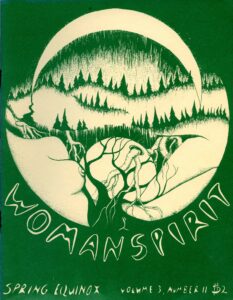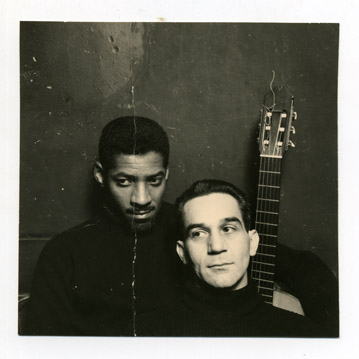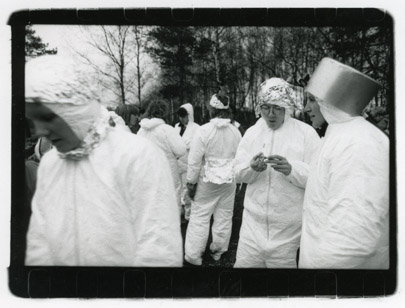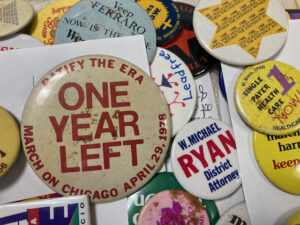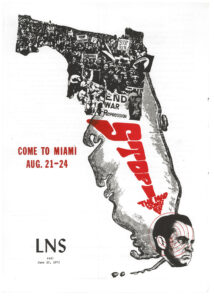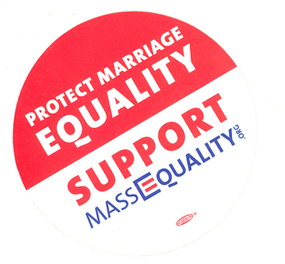Jay Goldspinner Collection
All social change and cultural movements have their associated resources for the exchange of information, ideas, stories, and art. Particularly in the women’s movement, the effort to create newsletters, journals, and other forms of information dissemination was a proactive step taken to assert women’s stories and to locate the power of the press within women-run communities. These periodicals, both large and small in scale, reveal the ways women connected to each other and to larger spiritual and cultural concepts. Local artist, activist, and feminist Jay Goldspinner was engaged with many of these communities, particularly those characterizing the spiritual elements of the women’s liberation and feminist movements, and collected and saved their periodicals. Her collection includes journals focusing on feminist linguistics, goddess myths and spirituality, Wiccan and witch traditions, progressive politics, and women’s spirituality and community in local and international settings. Each is a unique window into discourses of women’s history, feminist movements, and social change work.
The Jay Goldspinner Collection consists of issues of feminist and progressive periodicals, journals, and newsletters from over five decades, along with correspondence, ephemera, and scrapbooks from Goldspinner’s life, especially her work as a storyteller. Published titles represented include Always in Season, Goddessing, The Lonesome Node, The People’s Voice of Franklin County, Themis/Thesmophoria, Wicked Word, and an almost complete run, including the two indexes, of the seminal magazine of feminist spirituality, WomenSpirit.


